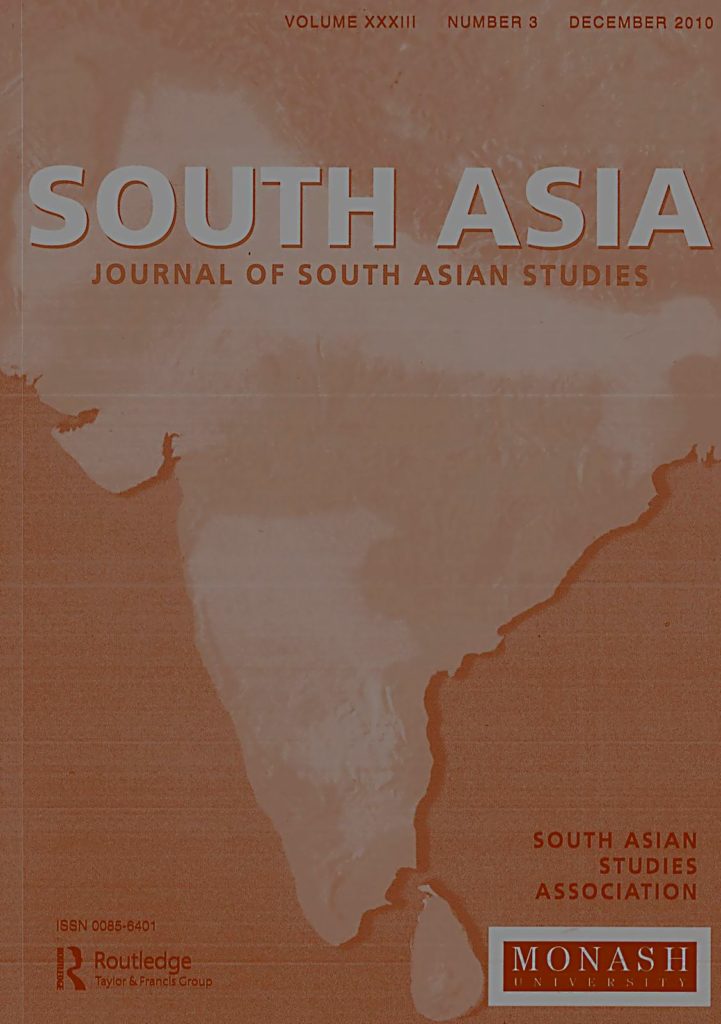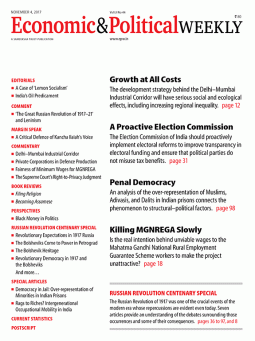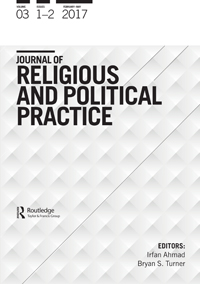Ahmad, Irfan. 2010. “Is There an Ethics of Terrorism? Islam, Globalisation, Militancy”. South Asia: Journal of South Asian Studies.33(3): 487–498.
Abstract: This essay is divided into three parts. In the first part, I dwell on some writings on terrorism. The literature discussed is by no means representative. My choice was guided more by salient themes than other considerations. The first part illustrates—in post-9/11 studies of Islam—a dominant strand I have elsewhere called the ‘securitisation of Islam’, driven by the logic of ‘geopolitical’, ‘strategic’ interests. Here I also shed light on the interrelationship between the analyst and the object of analysis. In the second part, I discuss some key publications to gesture towards another significant strand of thought in the studies of terrorism. Building on the discussion in previous sections, the final part of the essay discusses Devji’s book by highlighting an alternative to the commonplace understandings of Islam and terrorism by dwelling on ethics as opposed to ‘geo-political’ and ‘strategic’ interests.
Keywords: Globalization, Terrorism, Habermas, Islam, India, USA, Gandhi, Arent




